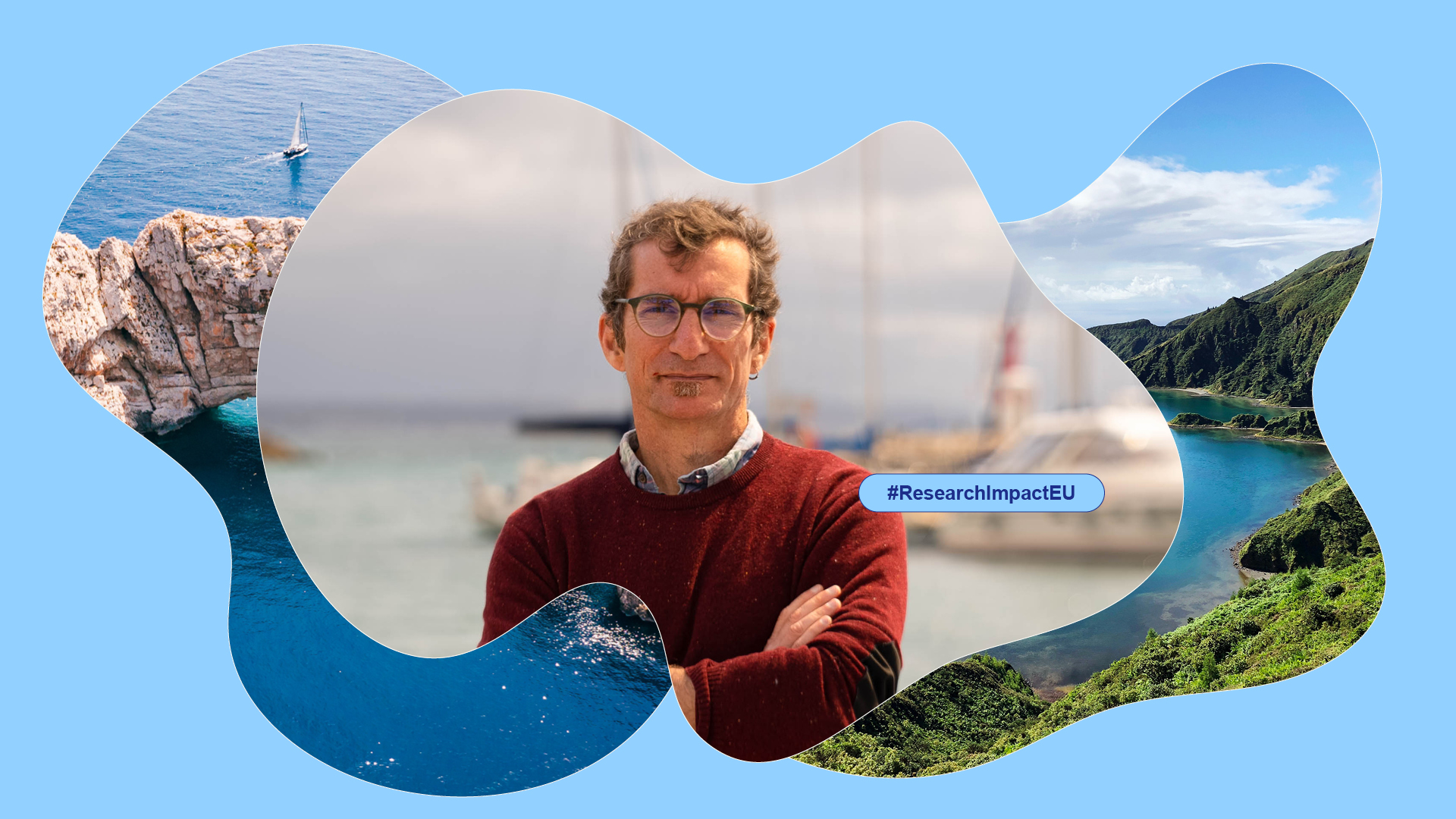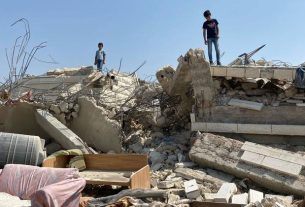English version, versión en español
‘We have nowhere else to go’
Jordà and his team at SOCLIMPACT project have designed a way to measure the expected impact of climate change on different EU islands to help them better prepare for its effects.
To an outside observer, they may seem like parcels of paradise, but Europe’s islands are on the front line of climate change. Not only are their coastal communities under direct threat from rising sea levels, but their economies – often heavily dependent on tourism – are at risk from increasingly extreme weather patterns and ecosystem damage.
Carrying out research into the expected consequences of climate change on a local level enables the islands to develop solutions specific to their local environment and empower locals to take part in growing a sustainable blue economy in Europe and beyond.
Trouble in paradise
While scientific research into the expected impacts of climate change includes projections for the impact of climate change globally, there is a knowledge gap when it comes to how specific island ecosystems like Mallorca, where Jordà is based, will cope.
“
Carrying out research into the expected consequences of climate change on a local level enables the islands to develop solutions specific to their local environment and empower locals to take part in growing a sustainable blue economy in Europe and beyond.
To plan how best to adapt to a changing climate, he teamed up with researchers from EU islands across the world, including Corsica, the Azores, the Canary Islands, Crete, Malta and the West Indies, to develop concrete predictions about what things we can expect to happen.
‘We need to produce very accurate and local results for each one of the islands,’ explains Jordà. But he has found that even if each island faces different challenges depending on its geography, bringing together a wide range of geographical perspectives has been helpful in building a picture of the far-reaching consequences of climate change.
It is not just geographical diversity that has driven the success of their research. Alongside meteorologists, oceanographers and marine biologists, Jordà’s team has worked with economists who are building predictions about how local societies will be impacted by changes which – in many instances – are already taking place. Working with experts from such a mix of disciplines was not always straightforward, but ultimately this was what allowed the team to cover new ground and come to vital conclusions about how islands communities will cope in the future. ‘This took us out from our comfort zone but it was really really fruitful,’ Jordà explains.
From knowledge to action
Building meaningful plans for adapting to climate change based on the information they have gathered is a key priority for Jordà and his team.
For example, they have made important discoveries about Posidonia Oceanica, a seagrass native to the Balearics that is home to a wealth of local species and is particularly vulnerable to heat damage because of rising sea temperatures. Contrary to what they thought before they began the research, it is the grasses located a little further from the sea’s surface that suffer most from heatwaves, since those closest to the surface are better able to recover thanks to easier access to nutrition sources. Using this knowledge, they realised the best way to alleviate the worst damage in the short to medium term would be to limit boat anchoring and water pollution in hotspots for the seagrass.
“
More sustainable local economy and society can be developed thanks to scientific research into how best to protect and preserve our oceans and seas.
While the sea around other islands such as Cyprus is home to different varieties of seagrass, with different behaviours, locals can still benefit from the way Jordà and his team did their research and apply it to their own local situation. By extrapolating the results from places like Mallorca, actionable plans can be drawn up for many other coastal areas beyond islands themselves.
The far-reaching consequences of climate change are already affecting us all, so it is important for Jordà and his team to reach out to local citizens and business to communicate their findings and get them on board for the next steps, in addition to making recommendations to local government.
In this way, a more sustainable local economy and society can be developed thanks to scientific research into how best to protect and preserve our oceans and seas.
Science, research and innovation: our secret ally
This research is part of the EU’s efforts to discover new ways to prepare for climate change, protect our oceans and waters, and fight cancer. Together, EU countries can work more effectively, by pooling funding and expertise from around the world, coordinating international efforts, and benefiting from local knowhow.
Thanks to EU investments, it is possible for international research collaboration to address challenges too big to be addressed by one country alone.
Join researchers on a mission to protect our planet and society, by sharing, liking and following the stories of #ResearchImpactEU.



